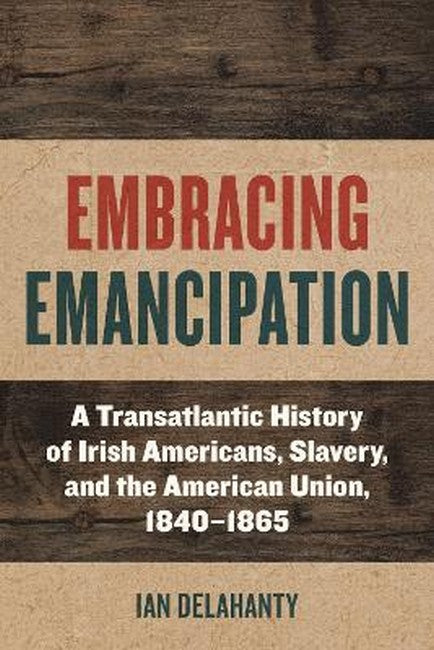Ian Delahanty is an associate professor of history at Springfield College, where he teaches classes in American history, the Civil War era, American immigration history, and public history.
Request Academic Copy
Please copy the ISBN for submitting review copy form
Description
Introduction 1 1 "We want no slave lecturing here": The Irish Critique of Abolitionism 15 2 "Over the broad Atlantic": Abolitionist Appeals to Emigrants and Immigrants 42 3 Irish-American Unionism and Slavery 65 4 "As if I was a common Irishman": The Irish-American Critique of Antislavery 99 5 Irish Americans and the Union War 134 6 Unionism and Emancipation on the Home Front and Battlefield 168 7 "All true Republicans": Irish- American Leaders and Emancipation 203 Conclusion: Irish America and Ireland after the Civil War 237 Acknowledgments 251 Notes 253 Bibliography 293 Index 313
Over a million and a half Irish fled national devastation inflicted by the Great Famine of 1845-52 while, a decade later, the Civil War threatened the foundations of the American Republic. Delahanty intriguingly connects these episodes in a vortex of antislavery activism, nationalist politics, and immigrant settlement.-- "Choice Reviews" With his innovative questions and research, Delahanty traces out a narrative that looks not to exclusively domestic causes within the United States, but examines Irish-Americans as a self-conscious exile community, determined to end their native island's oppression by England, while at the same time demonstrating loyalty to the United States.-- "Emerging Civil War Blog" Ian Delahanty has provided an important corrective to the oversimplification of our understanding of the Irish American position on slavery, antislavery, and race. He shows that Irish opinion changed over time in response to the evolving situation on both sides of the Atlantic. And he also emphasizes the way that the attitudes were far from homogenous within the Irish American community. His research, grounded in the rhetoric in Irish American and other newspapers, is solid, and in addition to the sophisticated analysis of that rhetoric, he provides pithy bits of narrative that engage the reader and illustrate his points.---Angela F. Murphy, Professor of History, Texas State University

